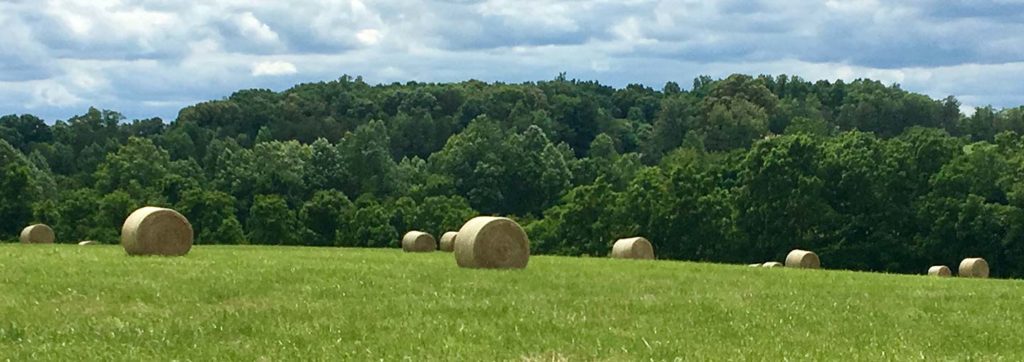The Board of Directors of the Virginia Biosolids Council (VBC) established a Code of Good Practice to provide guidance for its members on the production and beneficial recycling of biosolids in Virginia and requires the Council to report on its progress annually.
The Virginia Biosolids Council
Membership of the Council includes representatives of municipal utilities and contractors that beneficially recycle biosolids. It was established to educate the public and provide information on the production, beneficial use and recycling of biosolids; the Council also provides support to its members on regulatory, legislative and public matters. Member commitment to a Code of Good Practice requires Council members to go beyond compliance with the state’s extensive regulatory requirements for biosolids. It also addresses the social responsibility and the need for transparency to the public of the members’ activity. The Code’s best management practices further protect the environment and address public concerns about odors and other potential nuisances.
A Code Update
The Council’s membership is committed to steadily improving the quality of the biosolids it produces and to responsibly recycling those biosolids in Virginia. Many of our wastewater processing facilities, including mine, are modifying processes to create an exceptional quality biosolids that can be used on local parks, by gardeners and in other public and private landscapes, in addition to their continued use by farmers to benefit their soil and crops. This year our annual review of the Code of Good Practice takes account of the emergence of such new technology and of ongoing research. For instance, we are beginning to sponsor research that will help us to better understand the role of biosolids in sequestering carbon, thereby mitigating the impacts of climate change. Biosolids recycling is essential to the recovery of valuable nutrients from our wastewater. Its use is highly regulated. By adhering to the guidance we have established in our organization’s Code of Good Practice, it is our intention to continue grow public trust and support for this valuable activity.
Executive Performance Summary
The year 2018 provided an unprecedented challenge to the practice of normal operations by the biosolids community. The record-breaking precipitation of that year, which continued into the early months of 2019, made it difficult to beneficially apply and to store biosolids. Although there were a few regulatory issues prompted by the measures Council members undertook to address this crisis, the biosolids community was able to do so in a manner that protected public health and the environment. Information on biosolids inspections and complaints collected by the Department of Environmental Quality (DEQ) supplies the Council with some of the major measurements of the members’ performance. Provided below is a summary of this information, which is available to the public.
-
In 2019, biosolids were applied to 47,792 acres, a significant increase from the 33,543 acres applied to farms and forests in 2018.
-
In 2019, DEQ conducted 243 inspections on farms where biosolids was applied. VBC members were responsible for more than 98% of all the biosolids used or recycled in 2019. VBC members received three warning letters and one notice of violation (NOV) issued by DEQ. The NOV was associated with emergency storage at two facilities in central Virginia.
-
In 2019, DEQ reported 28 actual complaints from the public specific to biosolids activities. Most of these complaints concerned odor.
DEQ regulations require property owners adjacent to an application site to be notified about the application and use of biosolids. VBC members partner with DEQ to address citizen questions or concerns that originate either during a public comment period or at an informational meeting.
-
In 2019, DEQ provided notifications to 1,858 adjacent landowners and received responses from 134, or 7% of those landowners. DEQ held one public meeting, inviting a total of 52 adjacent landowners, with eight citizens attending the meeting. Previously in 2018, DEQ provided notifications to 955 adjacent landowners and received responses from 44, or 5% of those landowners. DEQ held 10 public meetings in 2018, inviting a total of 863 adjacent landowners, with 84 citizens attending the meetings. Notification of these public meetings were published in a local newspaper.
VBC Commitment Under Extraordinary Circumstances
The release of this year’s annual report coincides with the unprecedented concerns prompted by the Covid-19 pandemic. In this environment, it is important to note our members’ commitment to protecting public health. Municipal wastewater treatment plants that purify and return clean water to the environment are critical to protecting public health and safety. Similarly, the VBC members that apply biosolids on farms, or recycle biosolids that are used by the public, comply with the many safeguards that exist for these practices. Together, we are confident that the practices we follow fully protect public health and the environment. To learn more about Covid-19 and biosolids and wastewater treatment, please visit the Virginia Biosolids Council’s website.



Questions concerning this report can be addressed at info@virginiabiosolids.com.
Jamie Heisig-Mitchell
President, Virginia Biosolids Council
Chief of Technical Services, Hampton Roads Sanitation District
